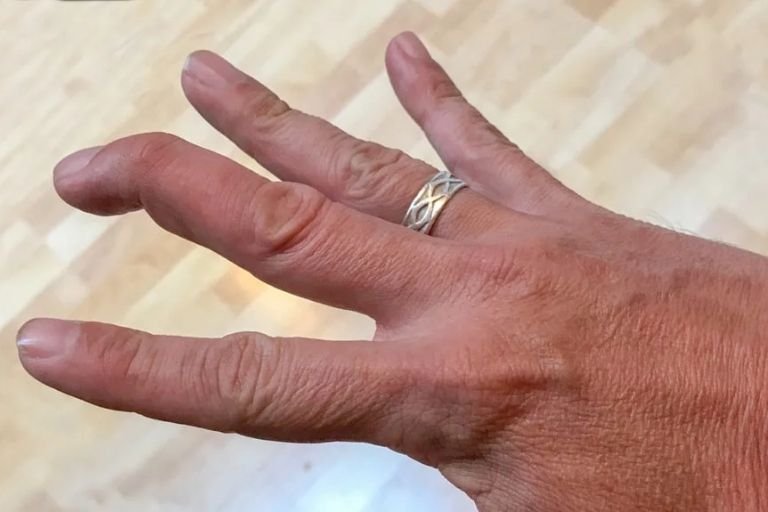- Fitwell Physiotherapy
Muscle Imbalance of Shoulder

Muscle imbalance in the shoulder occurs when there’s an unequal distribution of strength or flexibility among the muscles that stabilize and move the shoulder joint. This condition can lead to various symptoms and complications if left untreated. Let’s delve into the details:
Please submit your details below.
Symptoms:
- Pain: Persistent pain in the shoulder area, especially during movement or certain activities.
- Weakness: Difficulty in lifting or moving the arm, particularly overhead.
- Limited Range of Motion: Reduced flexibility and difficulty reaching behind the back or overhead.
- Muscle Fatigue: Quick onset of fatigue in the shoulder muscles during physical activity.
- Poor Posture: Imbalance can contribute to poor posture, leading to further strain on the muscles and joints.
Causes:
- Overuse: Repetitive activities or sports that involve overhead movements, such as swimming or tennis, can lead to muscle imbalances over time.
- Poor Posture: Prolonged sitting or standing with improper posture can contribute to muscle imbalances in the shoulder region.
- Muscle Weakness or Tightness: Weakness in certain muscles or tightness in others can disrupt the balance of the shoulder joint.
- Trauma or Injury: Previous shoulder injuries or trauma can result in muscle imbalances during the healing process if not rehabilitated properly.
When to See a Physiotherapist:
It’s advisable to consult a physiotherapist if you experience persistent shoulder pain, weakness, or limited range of motion. Additionally, if you’ve had a shoulder injury or participate in activities that place repetitive stress on the shoulder joint, seeking professional guidance can prevent further complications.
Risks:
- Increased Injury Risk: Muscle imbalances can predispose you to injuries such as rotator cuff tears, shoulder impingement, or tendonitis.
- Chronic Pain: Untreated imbalances may lead to chronic pain and dysfunction, affecting daily activities and quality of life.
- Reduced Performance: Athletes may experience a decline in performance due to compromised shoulder function and strength.
How to Prevent:
- Balanced Exercise Routine: Incorporate exercises that target all muscles surrounding the shoulder joint, including the rotator cuff muscles, deltoids, and scapular stabilizers.
- Proper Form: Maintain correct posture and technique during activities to prevent undue stress on the shoulder muscles.
- Rest and Recovery: Allow adequate time for rest and recovery between workouts to prevent overuse injuries.
- Regular Stretching: Perform stretching exercises to maintain flexibility and prevent muscle tightness.
- Postural Awareness: Be mindful of your posture throughout the day, especially if you have a sedentary job or lifestyle.
Treatments:
- Physical Therapy: A physiotherapist can develop a personalized treatment plan comprising exercises to strengthen weak muscles, improve flexibility, and correct imbalances.
- Manual Therapy: Hands-on techniques such as massage, joint mobilization, or soft tissue manipulation can help alleviate pain and improve shoulder function.
- Modalities: Modalities like heat, ice, ultrasound, or electrical stimulation may be used to reduce pain and inflammation.
- Bracing or Taping: Supportive braces or taping techniques can provide stability and support to the shoulder joint during activities.
- Surgical Intervention: In severe cases or when conservative treatments fail, surgical intervention may be necessary to correct structural issues or repair damaged tissues.
Addressing muscle imbalances in the shoulder requires a comprehensive approach involving exercise, proper biomechanics, and professional guidance. By taking proactive steps to prevent and treat imbalances, you can maintain optimal shoulder health and function.
Frequently Asked Questions
Related Conditions
How Fitwell Physiotherapy Can Help?
Dr. Richa’s Fitwell physiotherapy has an extensive team of physiotherapists all within their own specialist areas of physiotherapy. Whatever your condition, we guarantee that we will have the best physiotherapist for you. We assess, diagnose, plan, cure and care for you.
Fitwell Physiotherapy Clinic, Pune provides you best physiotherapy treatment in Kharadi, pune. We also serve Chandan Nagar, Vadgaon Sheri, Keshav Nagar, Wagholi & nearby Areas in Pune. We are experts in treating Neck Pain, Hand Pain, Back Pain, Lower Back Pain, Knee Pain, Stiff Neck, Sciatica, Arthritis, Stroke Paralysis & Post Surgical Rehab.
We provide Specialized physiotherapy treatments in Sports Injuries, Pre and post Surgery, Neurologic, Pediatric, Chronic Pain/Fatigue, Rheumatology, Women’s Health, Men’s Health, Ergonomics, Vestibular, Amputees & all sort of Pain treatment and lifestyle conditions.

































































































